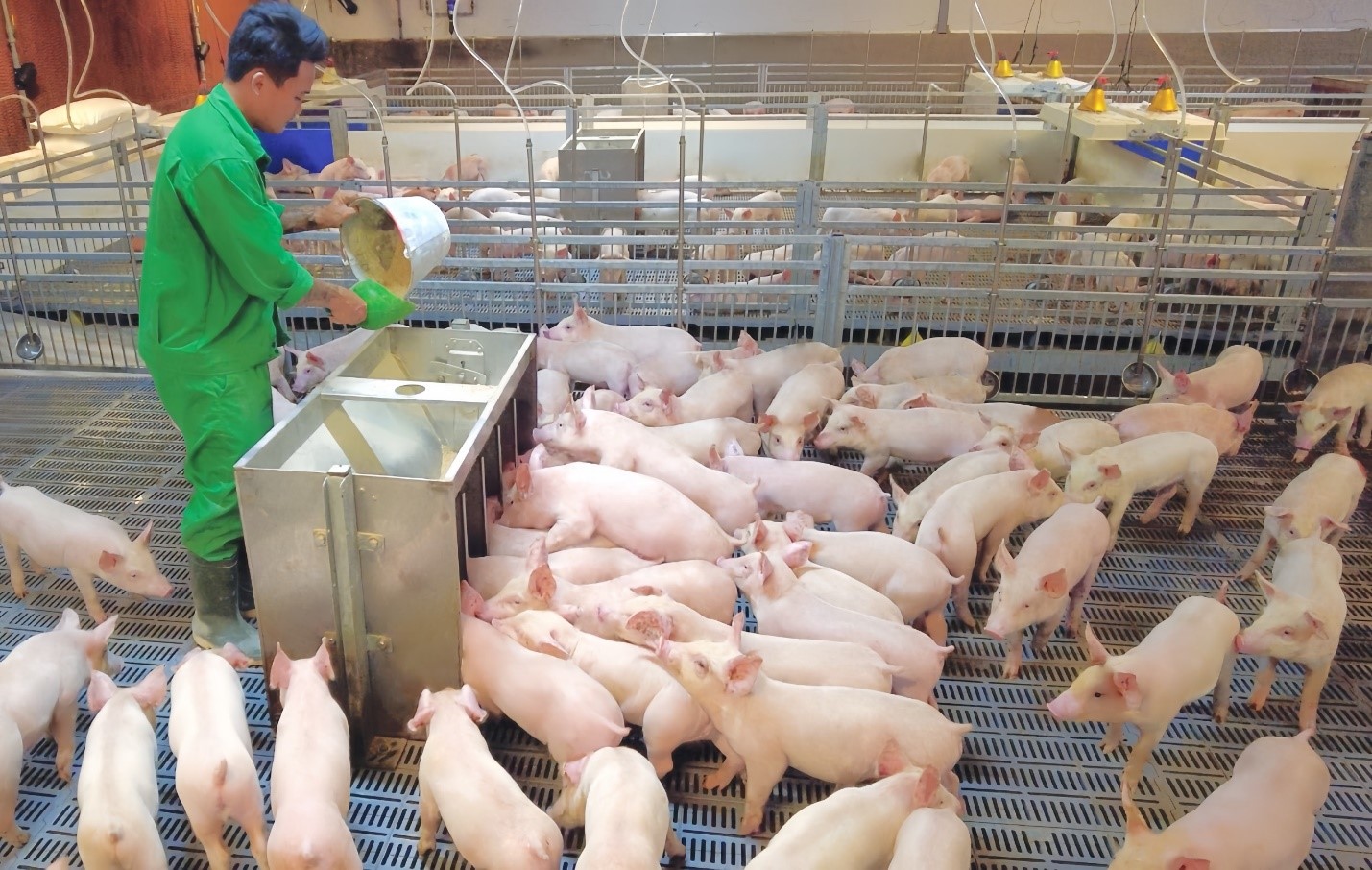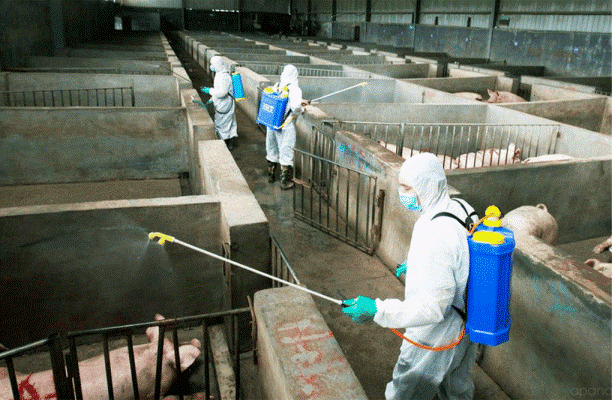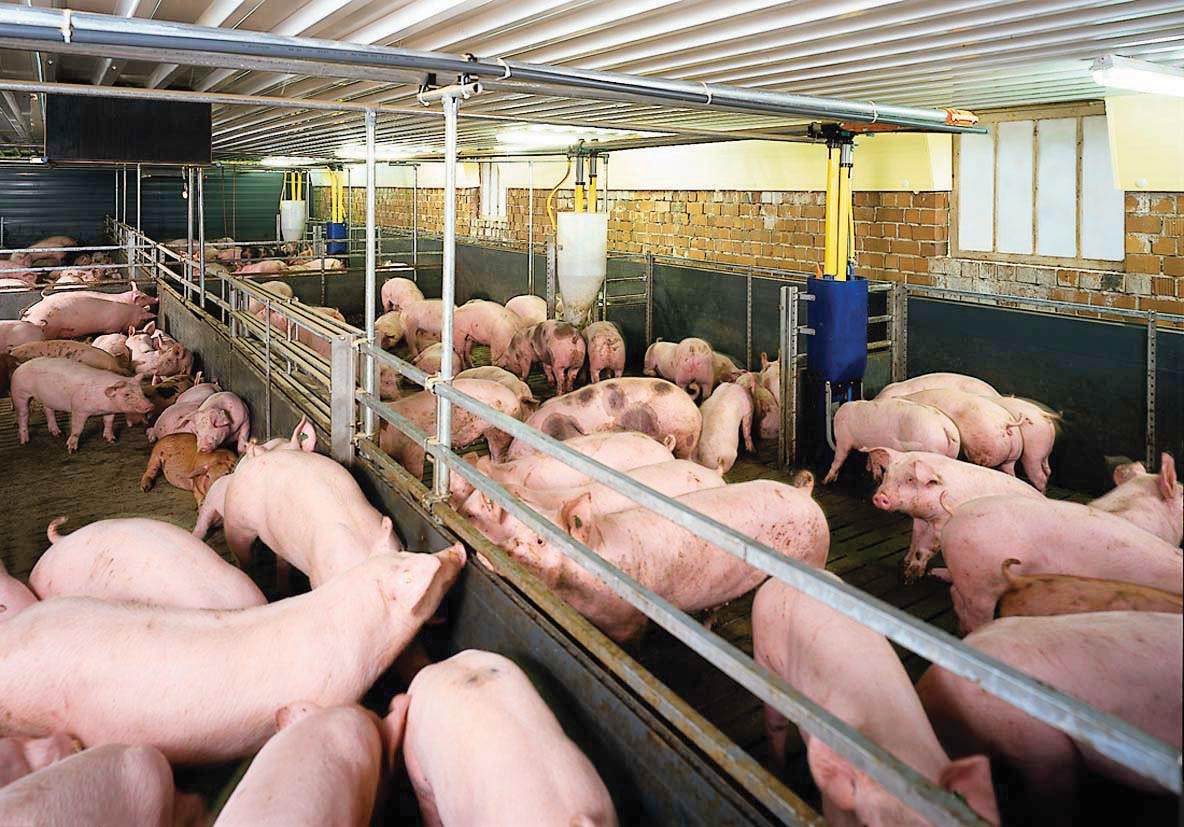African swine fever (ASF) causes severe economic losses. To protect pig herds from this dangerous disease, it is essential to proactively implement strict and science-based preventive measures.
African swine fever (ASF) is a highly contagious and deadly viral disease affecting pigs, causing severe economic losses in the livestock industry. To protect herds effectively, strict biosecurity measures and proactive management practices must be applied. The following guidelines provide practical steps for farmers and veterinarians to prevent and control ASF outbreaks.
1. STRICT BIOSECURITY MEASURES
– Do not allow strangers or unauthorized vehicles to enter the farm. Disinfect and quarantine before entry.
– Control animals and insects inside barns and the farming area. Install nets and perimeter walls to prevent intrusion.
– Keep barns clean, dry, and well-ventilated, avoiding humidity and draughts.
– Regularly apply lime and disinfectants. Products such as DEXON SUPER can be used for routine disinfection.

2. EARLY DETECTION AND REPORTING
– If pigs show signs such as loss of appetite, high fever, or cyanosis (bluish/purple skin), they must be isolated and veterinary authorities notified immediately.
– Absolutely avoid selling infected pigs or concealing outbreaks.

3. DO NOT USE UNTREATED FOOD WASTE
– Provide feed that is nutritionally balanced, containing adequate energy, protein, and minerals, and free from mold contamination.
– Do not feed leftover or untreated kitchen waste to pigs.
– Ensure pigs have access to clean drinking water at all times.
4. STRICT INPUT CONTROL
– Only purchase pigs with clear origin and valid veterinary quarantine certificates.
– Quarantine newly introduced pigs for 2–3 weeks before mixing with the main herd.

5. ENHANCING IMMUNITY
– Supplement pigs with Vitamin C and electrolytes using products such as GLUCAN C, COOLVIT, etc., to boost resistance.
– Periodically use herbal liver and kidney detox products; for example, SORBACIN can be mixed into feed.
By rigorously applying these measures, farmers can reduce the risk of African swine fever outbreaks, protect herd health, and maintain sustainable pig production. Continuous monitoring and cooperation with veterinary services remain crucial in the ongoing fight against ASF.
